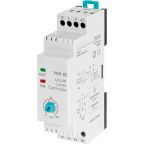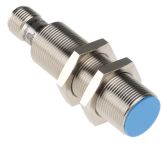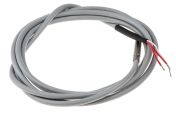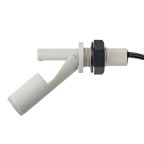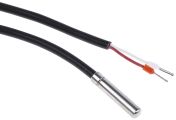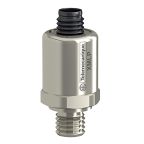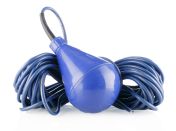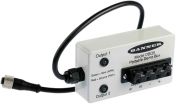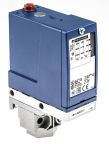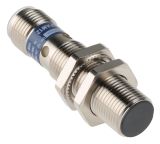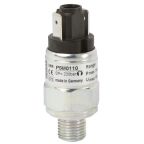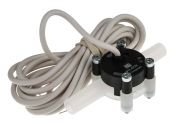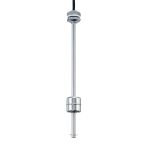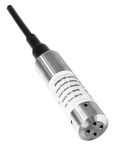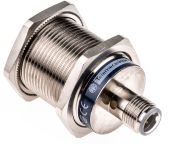Sensors are devices that detect changes in the environment by responding to various forms of energy, from heat and light to pressure and chemical activity. They convert these environmental inputs into data that can be read and interpreted by electronics, often triggering a response or adjustment in connected systems.
Types of Sensors
As Australia's premier sensor manufacturer, supplier and distributor, we offer a range of sensors from general-purpose to RFID and IO-Link models. The RS range includes high-performance and high-precision sensor solutions for detection and measurement, smart automation, and precision monitoring, such as:
Thermal Sensors
Often known as temperature sensors, these can be set to measure a specific temperature or a range of temperatures. They are often used for environmental compliance and can be a key component of humidity sensor applications such as automated AC units.
Proximity Sensors
Motion sensors can work as ultrasonic sensors, which use sonic waves to determine proximity to objects. Capacitive proximity sensors use electromagnetic waves to determine the proximity of metallic objects and are frequently used in food safety environments.
Flow Sensors
These sensors are for measuring the force of fluid flow.
Pressure Sensors
Used for sensing the physical pressure of gas or fluids, these sensors can be used in industrial pneumatic and hydraulic applications.
Photoelectric Sensors
Often referred to as optical sensors, photoelectric sensors use a beam of electro magnetic radiation to detect the presence and location of an object. They are available as through-beam sensors, retro-reflective sensors and diffuse sensors.
Light and Colour Sensors
Often a type of optical sensor that works by casting light and measuring the reflected radiation, light and colour sensors can accurately determine a colour or shade, or its absence. Light intensity and colour or contrast sensors are often used in automation and control machinery to ensure the consistent running of a material.
Motion Sensors
A broad category of sensors used to detect motion, often by infrared light, such as in PIR sensors.
What are Smart Sensors?
Smart sensors carry out the same measurement applications as regular sensors with additional control through smart capabilities such as self-identification, testing, validation, and learning. They help to provide live data, establish communication between machines, and react on their own to diagnose and correct issues to improve efficiency.
Sensor Measurement Sensitivity and Errors
Sensors are sensitive to specific properties they are designed to measure while remaining largely unaffected by other environmental factors. Most sensors operate with a linear transfer function, where sensitivity is defined as the output signal divided by the measured property.
However, ideal transfer functions are not always easy to achieve, leading to deviations that can impact accuracy. These deviations are categorised as systematic or random errors. However, systematic errors might be corrected through calibration, while random errors, such as noise, are often mitigated through signal processing techniques like filtering, though this can affect the sensor's responsiveness.
Sensor Maintenance and Calibration
Industrial maintenance helps prevent unexpected failures for sensors, while equipment calibration adjusts sensors to maintain precision in measurements. These practices are crucial in the life cycle of sensors to ensure accuracy and reliability, particularly in industrial settings.
Industry Applications
Sensors play a crucial role in optimising operations and enhancing efficiency across various industries by providing critical data for automation and monitoring processes, such as:
- Discrete manufacturing: Sensors are used to monitor assembly lines and equipment, ensuring components are correctly aligned and assembled. For example, proximity sensors detect the presence of parts as they move down the conveyor belt, triggering robotic arms to perform specific actions.
- Process manufacturing: Sensors in process manufacturing track conditions such as temperature, pressure, and flow rates, which are critical for maintaining product quality. They are used in chemical mixing and brewing processes, where precise conditions are necessary for consistent product output.
- Energy & utilities: Sensors help monitor infrastructure integrity and environmental conditions. For instance, pressure sensors in pipelines ensure gas and oil flow efficiently without leaks, while temperature sensors can help manage the cooling systems in nuclear reactors.
- Facilities intralogistics: Sensors manage and optimise the internal movement of goods and materials. For example, RFID sensors track inventory levels in real time, facilitating automated restocking and reducing manual errors in warehouse operations.
Your Trusted Sensors Supplier & Distributor
RS is a globally recognised and trusted supplier, distributor, and manufacturer of sensors, widely utilised across Australia. With our extensive range, we offer tailor-made sensor solutions suitable for a wide variety of applications, ensuring you find the exact sensor you need for any specific requirement.
Whether you need to buy sensors for industrial applications or innovative projects, RS always provides reliable, high-performance solutions. For more details on delivery services and fees, please refer to our Delivery Page.































